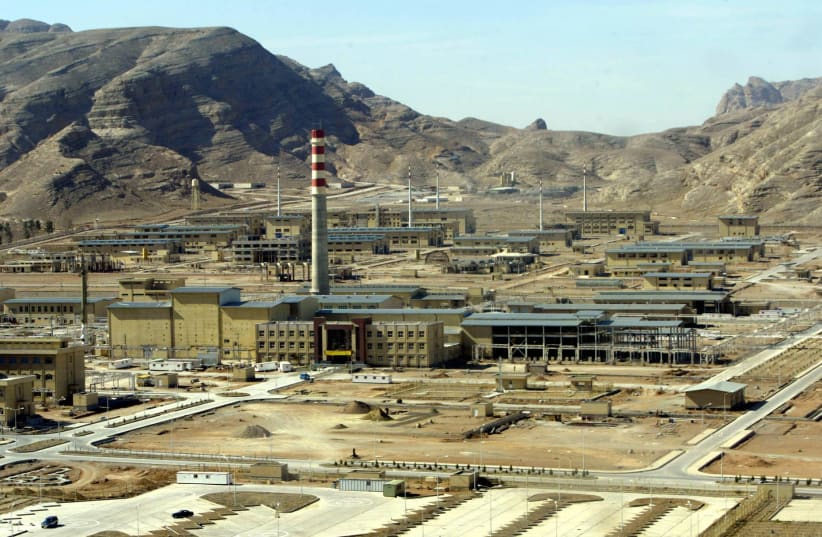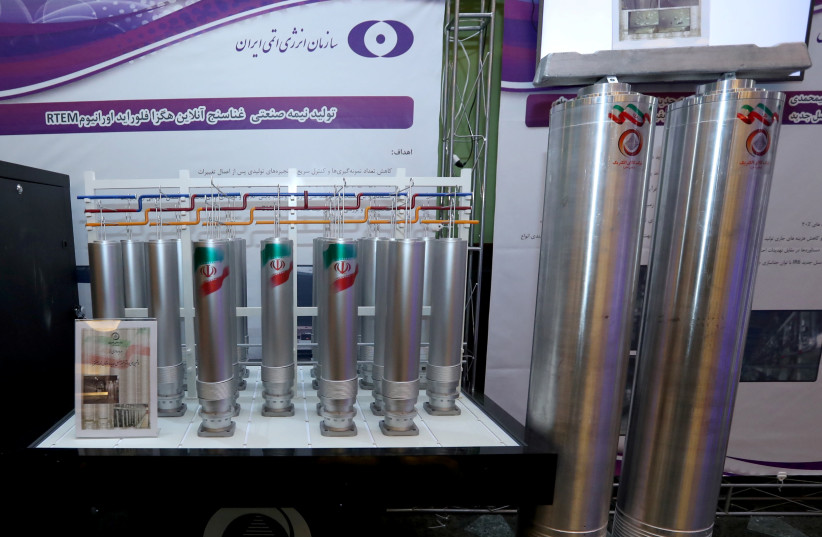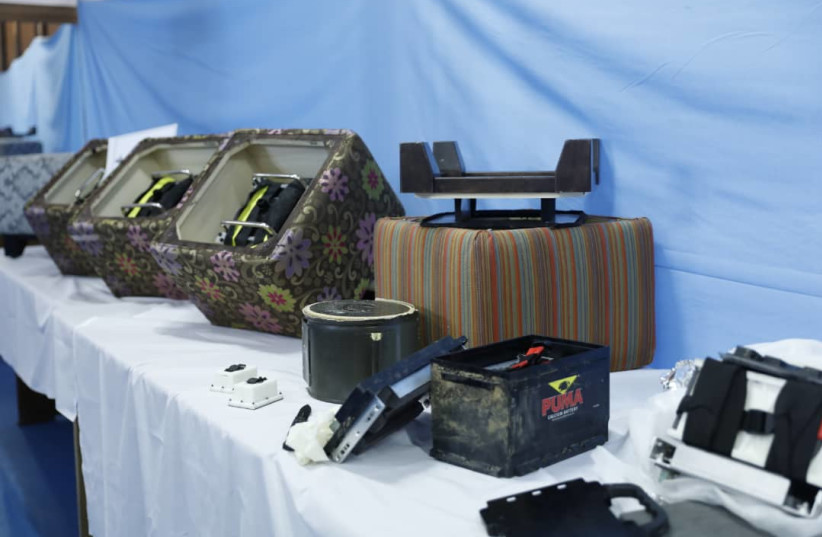Iran is building a new nuclear research reactor at a nuclear facility in Isfahan, Iranian Atomic Energy Organization head Mohammad Eslami announced on Wednesday, according to Iranian media.
The research reactor, which will be able to test fuel for other reactors, will be built at the Isfahan Nuclear Technology Center, one of the country's largest nuclear facilities. Eslami stated that the project is "completely indigenous and Iranian."
Eslami stressed that the main issue regarding the advancement of Iran's nuclear program is to increase the capacity of domestic power plants. The IAEO head added that the country is examining sites, especially in southern Iran, that could serve as favorable locations for new nuclear power plants.
"In this direction, we will use international partnerships and we will not wait for anyone, because Iran has sufficient scientific, industrial and technological capacities," said Eslami. "Fortunately, there are large companies in the country that can support the 10,000 megawatt nuclear power production program, and we also support any company and institution that participates in the program of the Atomic Energy Organization of Iran."
Eslami added that Iran intends to move forward to produce fuel for reactors and part of the fuel needed for power plants at the Isfahan complex.
The IAEO head dismissed claims that Iran's nuclear program has "non-peaceful goals."
"In all this time and in none of the inspections carried out by the agency, not even in one case has it been announced that Iran has not announced its intention and plan in advance or has concealed it. These cases are documented, and therefore, the expression of these news and contents does not serve any purpose other than to waste time and tire the other party," said Eslami.
"In all this time and in none of the inspections carried out by the agency, not even in one case has it been announced that Iran has not announced its intention and plan in advance or has concealed it. These cases are documented, and therefore, the expression of these news and contents does not serve any purpose other than to waste time and tire the other party."
Mohammad Eslami
Last month, some of the surveillance cameras used by the International Atomic Energy Agency (IAEA) were removed from the Isfahan site. Additionally, the IAEA reported last month that 90% of Iran's uranium enriched to 60% fissile purity had been moved to Isfahan. In January, the IAEA reported that Iran had informed it that it would move the production of centrifuge parts to Isfahan.
Last year, Iran announced that it had begun producing enriched uranium metal, a material that could be used to create the core of a nuclear weapon, at the Isfahan site.
Iran claims 'Mossad agents' came from Kurdistan
On Wednesday, the Iranian Intelligence Ministry announced further details about the alleged cell of Mossad agents it claimed to have caught on Saturday. The ministry claimed that the cell was made up of members of the Komala Kurdish party and was attempting to blow up a "sensitive defense industry" in the center of the country.
The cell was carrying a number of large and small explosives, handguns with silencers, laptops, mobile phones and routers, equipment to disguise themselves, foreign and local currency and fake identification documents. The ministry included photos claiming to show this equipment.
The Iranian ministry claimed that the Komala members were introduced to Mossad agents and that the party is "well-known" for conducting "proxy operations on behalf of the Zionist regime."
The ministry added that it will announce the number and identities of the alleged agents, as well as "related elements living abroad."
On Monday, the Komala party confirmed that a number of its members had been ambushed and arrested by Iranian forces. The party called the claims of the Iranian Intelligence Ministry "baseless accusations" and "an excuse for further repression in Kurdistan."
On Sunday, the Iranian Noor News agency claimed that alleged agents had been caught in the country were trying to blow up a "sensitive site" in Isfahan in central Iran. Noor News reported that the network entered Iran a few months ago through Kurdistan.
The report added that the network had been training for months in Africa in order to carry out the operation. According to Noor News, the Intelligence Ministry was tracking the network before they even entered Iran.
The network was arrested after they placed explosives at the site they were targeting and just hours before they intended to implement the final stage of their operation, according to the report.
Iran and Kurdistan
Iran has claimed multiple times that Israel's Mossad is operating in Iraqi Kurdistan.
In March, the Islamic Revolutionary Guards Corps (IRGC) fired 12 missiles toward a home in Erbil in the Kurdistan Region, saying it was a response to the "recent crimes of the fake Zionist regime.” The IRGC additionally claimed that the targeted structure was called "the Strategic Center of Conspiracy and Evil of the Zionists." Reports by Iranian and pro-Iranian media indicated that the missile strike was carried out in response to an alleged Israeli drone attack on an IRGC drone base in Mahidasht, Iran.


